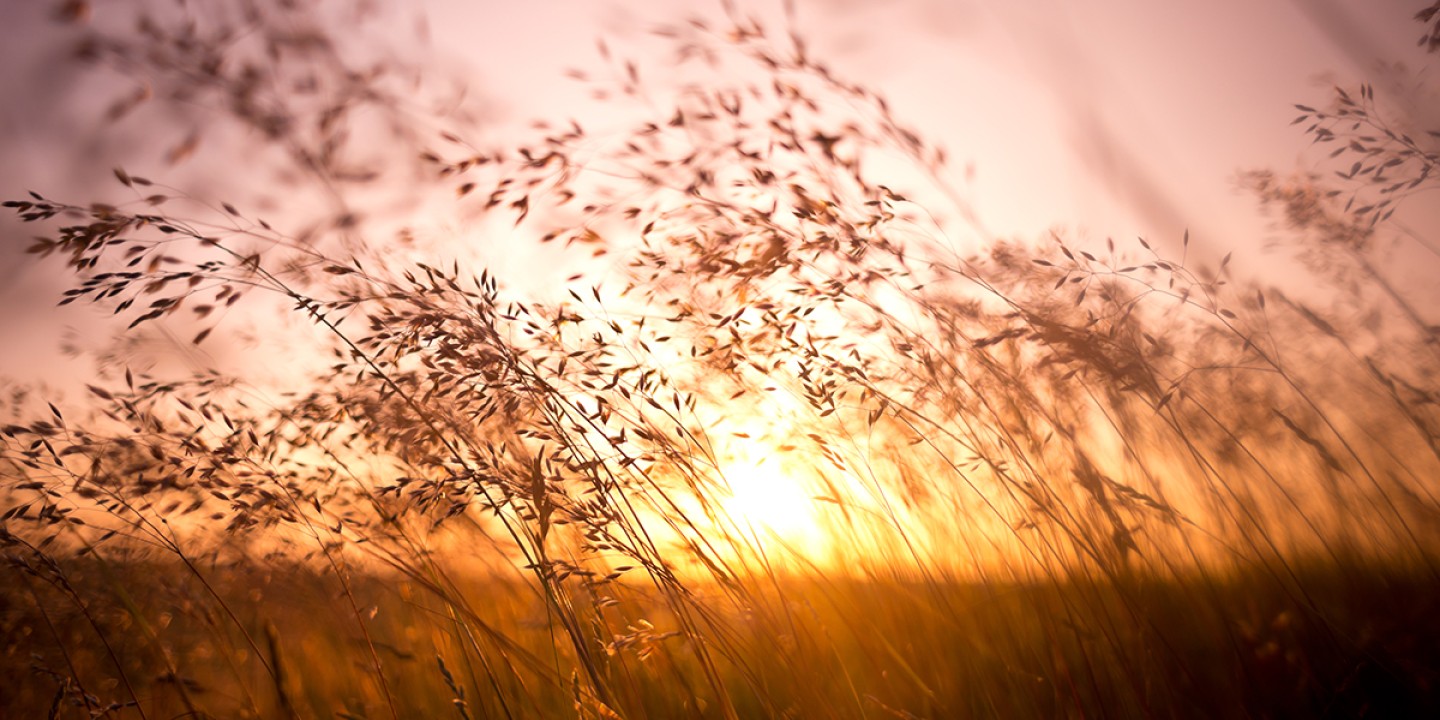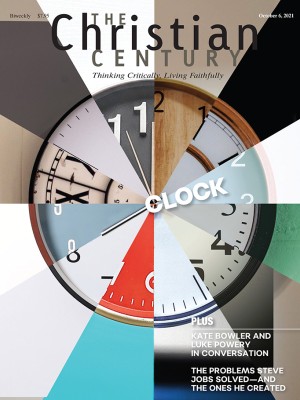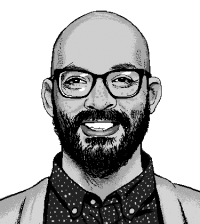A psalm of waiting as the pandemic continues
All plans feel like grass withering in the sun these days.

I’m sitting in my home office after what was going to be my first in-person work trip became yet another virtual gathering. There is a tangle of feelings I can’t quite sort out—disappointment, relief, uncertainty, rest.
Disappointment because even as an introvert I can feel the fraying of so much time in the same room and the same routine. Even the bike rides, those lifesaving flights into the world, become well-trod paths. There is the vacuous space I have to offer when my spouse comes home from work and asks about my day. What has my day been? I wonder.
“I caught a rat,” I say. A hole had appeared under our doorstep, and then there was a week of setting traps and waiting. It was the most interesting thing that had happened in a month. For days there was just walking the dog, sending emails, cleaning the house, talking to some faces on a screen. So I was disappointed that I wouldn’t be somewhere else meeting people, learning something new about someone, being surprised by an unexpected conversation in the hall. I was disappointed that I wouldn’t have a few days away from the familial duties that fill each day. The monotony would remain a little longer.
Read our latest issue or browse back issues.
Relief because the monotony would remain a little longer. I wouldn’t have any surprise encounters to expose my atrophied social muscles. I would not have to face the shame of simple tasks feeling like herculean efforts. How many pairs of pants? What goes where? What kind of shoes do we wear in faculty meetings again? How do I navigate COVID protocols at the airport? Mine is just one little life, and lots of lives have navigated far more in these past 18 months. But all of our worlds have gotten a little smaller, the complexity of interactions and masks and mandates and looking each other in the eye and wondering what’s permitted and what’s not. So I felt relief that I could stay in this little world of mine a little longer and avoid the accumulation of decisions that larger world requires of me.
And I felt uncertainty because all plans feel like grass withering in the sun these days. What will a month, two months bring? Some semblance of normalcy or a new variant? A natural disaster? A new uprising of White supremacist fanaticism? The idea of planning feels like getting into a car to go home and being told the brakes usually work. I can’t stay in the parking lot forever, so I plan the flattest route home I can and slowly roll forward, one hand on the parking brake and my foot just brushing the gas. I inch home, hoping a child doesn’t dart in front of me and that the road doesn’t have a surprise downhill—hoping everything works the way it’s supposed to but knowing it might not.
Once I’m home I can rest. I sink into the couch, put on some soft music, and rest—because how can I go out in that world again? I thank God for my little room and my little house, the few people and a dog I get to share it with, and the gift that I can live talking to people through a little screen on my desk.
I wish there was some deep theological meaning to our moment, something profound I could point to that makes this tangle of emotions make sense—like it was going to somehow make me stronger or clearer or more prepared for a future. And all this uncertainty feels magnified in a society that is tearing at the seams. (Or is it that the existing tears are just reaching farther?)
But if I’m honest I don’t know. I don’t know if my social muscles will return, if my heart will quicken when I’m in a small room with a stranger, if people confronted by a reasonable request—wear a mask, acknowledge an election or climate change or other human beings—will respond with reasonable humanity. I don’t know.
It’s a precarious place to be as a teacher and theologian, someone paid to know things. I used to believe in well-turned arguments: If they only knew x, they might see differently. But that’s not always true, and I am left wondering what’s next.
It feels a bit like we are in the first part of a psalm, where the narrator laments and cries out to God, against God, for God. We sing and sing, waiting for that but that turns the reader back to God, reminding us of what God has done, of what God’s presence might be. Deep down I know this. I know that we are not the only people to live in a moment when the world feels like it’s hurtling toward something terrible. I know that I am not even close to the fraying ends. But somehow in this moment I can also feel the pulls and the tugs and the interconnectedness in ways I had never quite been pricked by before.
So rather than end with platitudes or manufactured hope, I’ll offer a psalm, with my prayer that we will be reminded of the rest we need, the hope we desire, the people we are and could be.
God, enemies surround the gates. Men come for us with paper blades and malice, calling it care and love of life. Every day we are reminded of what we could change. But those who have power will not. We cry out to you, oh God.
Fires surround us. Even the air stings and chokes. The waters rise without ceasing, or our land is parched. We are trapped in homes, in factories, in debt while the rich build homes for their pets. We cry out to you, oh God.
We know there is an end, but we cannot discern it through screens. We know you are there, but we cannot feel your smile that sits behind a mask. So we wake, we work, we hope. We cry out to you, oh God.
----------
A version of this article appears in the print edition under the title “A psalm of unknowing.”







